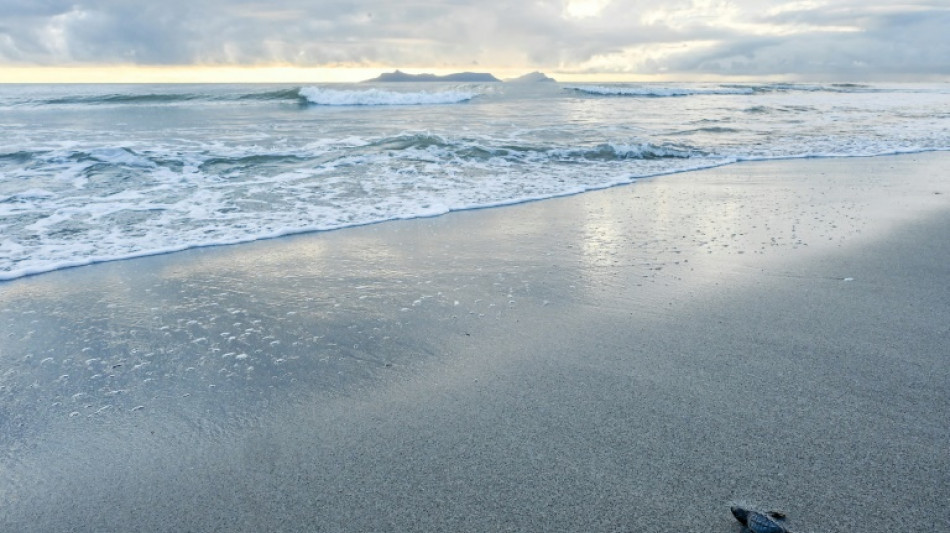
-
 Steelers' Metcalf suspended two games over fan outburst
Steelers' Metcalf suspended two games over fan outburst
-
Salah, Foster take Egypt and South Africa to AFCON Group B summit

-
 Napoli beat Bologna to lift Italian Super Cup
Napoli beat Bologna to lift Italian Super Cup
-
Salah snatches added-time winner for Egypt after Zimbabwe scare

-
 Penalty king Jimenez strikes for Fulham to sink Forest
Penalty king Jimenez strikes for Fulham to sink Forest
-
Kansas City Chiefs confirm stadium move

-
 Liverpool rocked by Isak blow after surgery on ankle injury
Liverpool rocked by Isak blow after surgery on ankle injury
-
US stocks push higher while gold, silver notch fresh records

-
 Deadly clashes in Aleppo as Turkey urges Kurds not to be obstacle to Syria's stability
Deadly clashes in Aleppo as Turkey urges Kurds not to be obstacle to Syria's stability
-
Is the United States after Venezuela's oil?

-
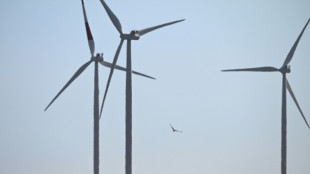 Trump admin halts US offshore wind projects citing 'national security'
Trump admin halts US offshore wind projects citing 'national security'
-
Right wing urges boycott of iconic Brazilian flip-flops
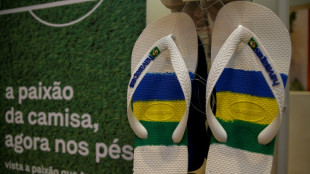
-
 From misfits to MAGA: Nicki Minaj's political whiplash
From misfits to MAGA: Nicki Minaj's political whiplash
-
Foster grabs South Africa winner against Angola in AFCON

-
 Russia pledges 'full support' for Venezuela against US 'hostilities'
Russia pledges 'full support' for Venezuela against US 'hostilities'
-
Spotify says piracy activists hacked its music catalogue

-
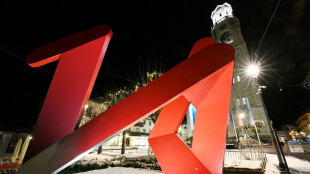 Winter Olympics organisers resolve snow problem at ski site
Winter Olympics organisers resolve snow problem at ski site
-
Fuming Denmark summons US ambassador over Greenland envoy
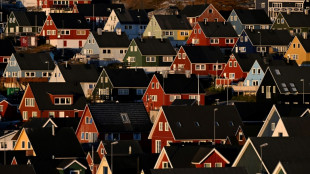
-
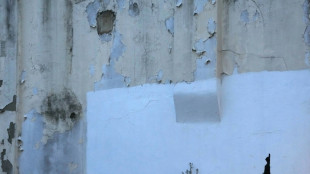 UK's street artist Banksy unveils latest mural in London
UK's street artist Banksy unveils latest mural in London
-
Rugby players lose order challenge in brain injury claim
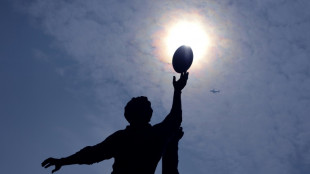
-
 UK singer Chris Rea dies at 74, days before Christmas
UK singer Chris Rea dies at 74, days before Christmas
-
Last of kidnapped Nigerian pupils handed over, government says

-
 Zambia strike late to hold Mali in AFCON opener
Zambia strike late to hold Mali in AFCON opener
-
Outcry follows CBS pulling program on prison key to Trump deportations

-
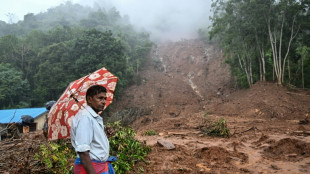 Sri Lanka cyclone caused $4.1 bn damage: World Bank
Sri Lanka cyclone caused $4.1 bn damage: World Bank
-
Billionaire Ellison offers personal guarantee for son's bid for Warner Bros

-
 Tech stocks lead Wall Street higher, gold hits fresh record
Tech stocks lead Wall Street higher, gold hits fresh record
-
Telefonica to shed around 5,500 jobs in Spain

-
 McCullum wants to stay as England coach despite Ashes drubbing
McCullum wants to stay as England coach despite Ashes drubbing
-
EU slams China dairy duties as 'unjustified'
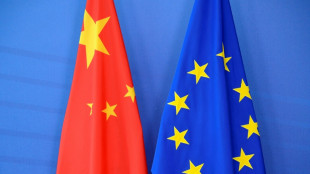
-
 Italy fines Apple nearly 100 mn euros over app privacy feature
Italy fines Apple nearly 100 mn euros over app privacy feature
-
America's Cup switches to two-year cycle
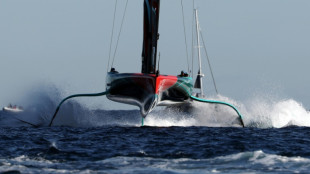
-
 Jesus could start for Arsenal in League Cup, says Arteta
Jesus could start for Arsenal in League Cup, says Arteta
-
EU to probe Czech aid for two nuclear units

-
 Strauss says sacking Stokes and McCullum will not solve England's Ashes woes
Strauss says sacking Stokes and McCullum will not solve England's Ashes woes
-
Noel takes narrow lead after Alta Badia slalom first run

-
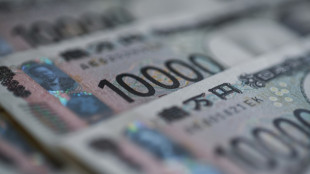 Stocks diverge as rate hopes rise, AI fears ease
Stocks diverge as rate hopes rise, AI fears ease
-
Man City players face Christmas weigh-in as Guardiola issues 'fatty' warning

-
 German Christmas markets hit by flood of fake news
German Christmas markets hit by flood of fake news
-
Liverpool fear Isak has broken leg: reports

-
 West Indies captain says he 'let the team down' in New Zealand Tests
West Indies captain says he 'let the team down' in New Zealand Tests
-
Thailand says Cambodia agrees to border talks after ASEAN meet

-
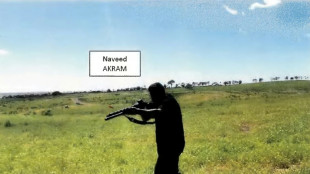 Alleged Bondi shooters conducted 'tactical' training in countryside, Australian police say
Alleged Bondi shooters conducted 'tactical' training in countryside, Australian police say
-
Swiss court to hear landmark climate case against cement giant

-
 Knicks' Brunson scores 47, Bulls edge Hawks epic
Knicks' Brunson scores 47, Bulls edge Hawks epic
-
Global nuclear arms control under pressure in 2026
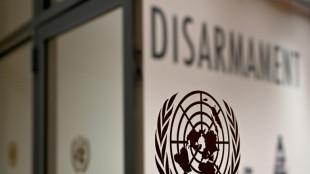
-
 Asian markets rally with Wall St as rate hopes rise, AI fears ease
Asian markets rally with Wall St as rate hopes rise, AI fears ease
-
Jailed Malaysian ex-PM Najib loses bid for house arrest

-
 Banned film exposes Hong Kong's censorship trend, director says
Banned film exposes Hong Kong's censorship trend, director says
-
Duffy, Patel force West Indies collapse as NZ close in on Test series win


Battle to save Panama turtle at center of aphrodisiac superstition
The sea turtles of Punta Chame, a peninsula of Panama that juts into the Pacific Ocean, face an existential threat similar to the rhino and pangolin: human superstition.
The eggs of the protected olive ridley turtle, illegally harvested from the beach, are sold door to door in town for 75 cents to $1 each for their purported aphrodisiac qualities.
"Especially men think that by eating turtle eggs they will have more sexual pleasure," said Jorge Padilla, a conservationist with the NGO Fundacion Tortuguias which collects and hatches the precious eggs.
"The eggs won't help you. They are not an aphrodisiac," he insisted.
The olive ridley (Lepidochelys olivacea) is listed as "vulnerable" on the Red List of the International Union for Conservation of Nature, with its numbers declining.
Its survival relies heavily on people like Padilla, who with village volunteers collect freshly laid eggs and bury them in sand at the nursery.
Hundreds hatch here each year between July and February. Within hours they are brought to the beach and released near the water's edge by volunteers who look on with parent-like pride as the tiny critters make a frantic dash for the ocean.
"We cannot just put them (in the water) because they have to go through a process called 'imprinting' (along the beach) that will bring them back in 18-20 years to the same beach where they were born" to lay their own eggs.
- Used for combs, clothes -
Day and night, Padilla patrols the beach to scare off poachers.
Other threats include stray dogs roaming the beaches for food, and eagles.
Padilla repels the dogs but leaves the eagles as they are natural turtle predators and part of the circle of life.
The turtles also end up as by-catch from fishing, and face threats to their nesting beaches from human encroachment and climate change.
"There are many threats to sea turtles, both in the Pacific and in the Caribbean: illegal egg harvesting, overconsumption of their meat, their shells... They are used for combs... clothing," said Padilla.
Marine turtles and their uncertain fate are on the agenda of a global wildlife summit taking place in Panama City, not far from Punta Chame with its 500 human inhabitants.
The gathering of countries under the Convention on International Trade in Endangered Species of Wild Fauna and Flora (CITES) will consider ways to combat egg theft and trafficking.
A working document on the CITES website states "the illegal harvest and trade continues to threaten marine turtles."
D.Kaufman--AMWN


